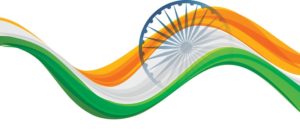On the 75th year since ‘at the stroke of midnight’, most, if not all, are born free children to the mother of the land, loved so dearly.  Comprehending and suitably fitting ideas of knowing a free land is one that is subjective, and converging among people so diverse. In search of finding and giving meaning to an idea so political, yet so personal, Sunday Shillong explores what it means to be ‘free’, ‘independent’ and ‘without shackles’ – figuratively and metaphorically. Exploring different aspects of Independence through the lens of author Janice Pariat takes us through different facets of their lives, shares different aspects – some personal, some intellectual, some anecdotal too, and others imaginative with our readers to pause and give life a thought on this momentous day.
Comprehending and suitably fitting ideas of knowing a free land is one that is subjective, and converging among people so diverse. In search of finding and giving meaning to an idea so political, yet so personal, Sunday Shillong explores what it means to be ‘free’, ‘independent’ and ‘without shackles’ – figuratively and metaphorically. Exploring different aspects of Independence through the lens of author Janice Pariat takes us through different facets of their lives, shares different aspects – some personal, some intellectual, some anecdotal too, and others imaginative with our readers to pause and give life a thought on this momentous day.
I’m slightly wary of the word “Independence” expresses Janice Pariat
Not because I believe we ought to be under British colonial rule for all posterity.
On this account, there is much to honour and celebrate in their departure, especially since this is the 75th year of Independence for our country. I’m wary only because I cannot help but feel that “Independence” remains, and perhaps always will, somewhat incomplete. Maybe, instead, Independence is a movement in motion. That we gained one kind of Independence in 1947, which let’s be honest, also brought with it its own losses and tragedies, but so many more remain. The shackles of caste and class, of Hindutva and hyper nationalism, of capitalism and sheer unadulterated greed. Have the old trappings merely been replaced with new ones? Elite brown “imperialists” in lieu of white sahibs. Has anything really changed? Apart from the rich becoming richer, the poor mostly remaining so, and everyone in between fearful and scrambling. Every Independence Day, I think, is a good day not only to celebrate, but to also remember that the good fight remains long unfinished.
Independence Day is also a day of appraisal.
Have the promises of our constitution been honoured and upheld? The constitution, not as a dusty old document, but a living, breathing promise that allows for the possibility of differences, of minorities, to exist safely, to flourish. The possibility of peaceful protest and dissent. Of questioning. Of demanding accountability. Of guaranteeing a right to one’s own privacy. On all these fronts, the government, State and Centre, must be judged. We must ask: are those in power truly in service of the people? Or themselves? And their own agendas—whether that’s to line their coffers or push forward religious ideology, or both and more. It is also a day to ask ourselves if we have done all we can—to help, to fight alongside those deprived of justice, to listen, to raise awareness, to not stay silent. On all these fronts, we must appraise ourselves.
Independence Day is a day to try and imagine alternatives. I say this because for me, this is the truer meaning of “freedom”. If not this government, which one? If not these leaders, who else? What do we imagine for ourselves, for this country, this state? And more importantly, are we open to acknowledging, to trying to understand, what others imagine for themselves? If today is a day to honour the struggles of the past, then it is also one that allows for an imagining—or a reimagining—of the future.
But most importantly, Independence Day is a day when we must ask for whom have these years as an “independent nation” not brought about any change for the better. And why? And can there be dialogue initiated now in the addressing of their grievances? A compassionate listening, and taking of action. So that in the Independence Days to come, there might be joy and relief for them too.
This nation is a wild, unwieldy thing. A lumbering, awkward giant with flailing limbs.
A construct perhaps unmeant to exist—but exist it does. And so, what must we do? Apart from asking ourselves, what kind of nation do I wish for? Do I fight for? Do I write for? Someday, it’s possible we may live in a post-nation world, but since India exists, here and now, what kind of India ought it be?
One I hope that sees asking these questions as a strength.
Janice Pariat is the author of Boats on Land: A Collection of Short Stories and Seahorse: A Novel. She was awarded the Young Writer Award from the Sahitya Akademi and the Crossword Book Award for Fiction in 2013.
Her novella The Nine Chambered-Heart, best selling in India, was published in the UK and in ten other languages including Italian, Spanish, French, and German. She studied English Literature at St Stephen’s College, Delhi, and History of Art at the School of Oriental and African Studies, London. Her work—including art reviews, book reviews, fiction and poetry—has featured in a wide selection of national magazines and newspapers.
(As told to Esha Chaudhuri)



